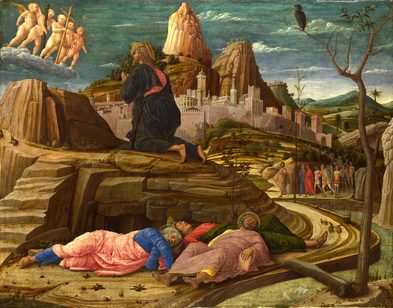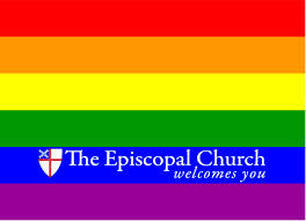May 3, 2015
by John A.K. Boyd, MD
- the Bible was not the literal Word of God, but the invention of the prophet, Ezra;
- Jesus performed no actual miracles;
- the story of Jesus’ resurrection was a myth;
- if Moses actually existed at all, he was a better politician and magician than Jesus and that Mohammed had been better than either;
- Jesus was an imposter;
- God, nature and the world were one, and had existed since eternity.

...if history and our own lives are rife with examples of church failures, problems and pain, why do we need this community we call “church”?
...could it be that God’s primary intention for the Church is that it be a school or training ground for forgiveness? | Trying to second-guess God’s purposes can be a bit dicey, but since I’m a doctor (and we often play God) I thought I’d give it a whirl. Some of the unique benefits of participation in a church community seem rather obvious: the experiences of transcendence that sometimes occur during corporate worship – particularly the sharing of Eucharist and music; the mutual support we garner during times of joy and sorrow such as baptisms, weddings, and funerals; the healings experienced in corporate prayer and the laying-on of hands; the learning and sharing of a common Biblical narrative that forms our identity, and helps make sense of our humanity and our relationship to our Creator. But it occurs to me, that there may be an even more important reason for those of us trying to follow Jesus to participate in a church. According to Jesus, there are only two things that are really important in life, two things that we really need to learn: 1) to love God, and 2) to love our neighbor as ourselves. According to today’s epistle from IJohn, we learn to love God by loving other humans – all other humans. But we need a place to start, and most of us can’t begin by loving neo-Nazis, ISIS militants or even our own politicians. We need to start with the basics. The first basic, the prerequisite to love according to Jesus, is forgiveness. We can’t really love others until we have learned to forgive them when they have hurt us. So, could it be that God’s primary intention for the Church is that it be a school or training ground for forgiveness? I think it might be so. |
...our brothers and sisters occasionally, if not frequently, fail us, and we fail them, because we are, in spite of being Christians, imperfect human beings who are often self-serving.
 Jesus praying in the garden after the Last Supper, while the disciples sleep, by Andrea Mantegna c. 1460
Jesus praying in the garden after the Last Supper, while the disciples sleep, by Andrea Mantegna c. 1460 The imperfect community of Jesus’ followers, what we now call the Church, is ironically the perfect environment in which to practice and experience forgiveness leading to love. Forgiveness can certainly be tough – but not as tough as we often think. In my own case, I did forgive my church of origin and have continued to love and respect my friends and family who are still participating in that Christian tradition. Doing so, however, was not the result of heroic spiritual effort on my part. Forgiving my church happened slowly, almost mystically, over several years as I continued to muddle along my own spiritual path in other Christian communities. Of course, part of that forgiveness was coming to understand that I had misjudged my church – coming to understand that some of those folks were not just interested in being doctrinally correct. Some of them sat with my mother, prayed with her and read her the Psalms as she lay dying. Some of them prayed for my nephew while he served a 20-year prison sentence for the murder of a homeless man, gave him a good job when he got out of prison, and helped him rebuild a life from ashes. My church helped me understand the fallibility of my moral assessments of other people. It taught me to be less righteous about my resentments and grudges –especially those that were fueled by my perception of motives I had imputed to others. Forgiving my church was, I think, the work of the Holy Spirit mediated through the lives of other Christians who forgave, loved and mentored me along the way.
And what about here and now? In case you hadn’t noticed, St. Mark’s is an imperfect Christian community. It is also a place where we have legitimate expectations of our sisters and brothers – expectations that we do not and will not consistently meet. But it is a place where many of us have continued to experience forgiveness and genuine love – in spite of our warts. In this season of transition, I hope we can realize that what we need to do is probably not rocket science. The grace to continue forgiving and loving one another comes from being connected to (or as John says “abiding in”) the Jesus Vine – and thus connected to the other branches. The pruning described in today’s gospel is not about us cutting the bad people out of the church – it is about our choices to remain connected and about God removing the sickly, dying pieces of detritus from each of us so that we all can flourish communally in God’s vineyard. But we must stay connected to each other through Jesus. To do so, we will probably, as Stanley Hauerwas has written, “have to break our habit of having church in such a way that people are deceived into thinking that they can be Christians and remain strangers.” The practices that keep us from remaining strangers, practices that help us remain connected to each other as branches on the Vine are, fortunately few and relatively simple: worshiping together, praying together, eating together, studying together, playing together – and perhaps even putting a few more shekels in the collection plate. Mostly, I think we just need to show up.
- John 15:1-8 (NRSV)
- 1 John 4:7-21 (NRSV)
- How the Scots Invented the Modern World, Arthur Herman
- Resident Aliens, Stanley Hauerwas & Will Willimon
- Surprised by Joy, C.S. Lewis


 RSS Feed
RSS Feed

